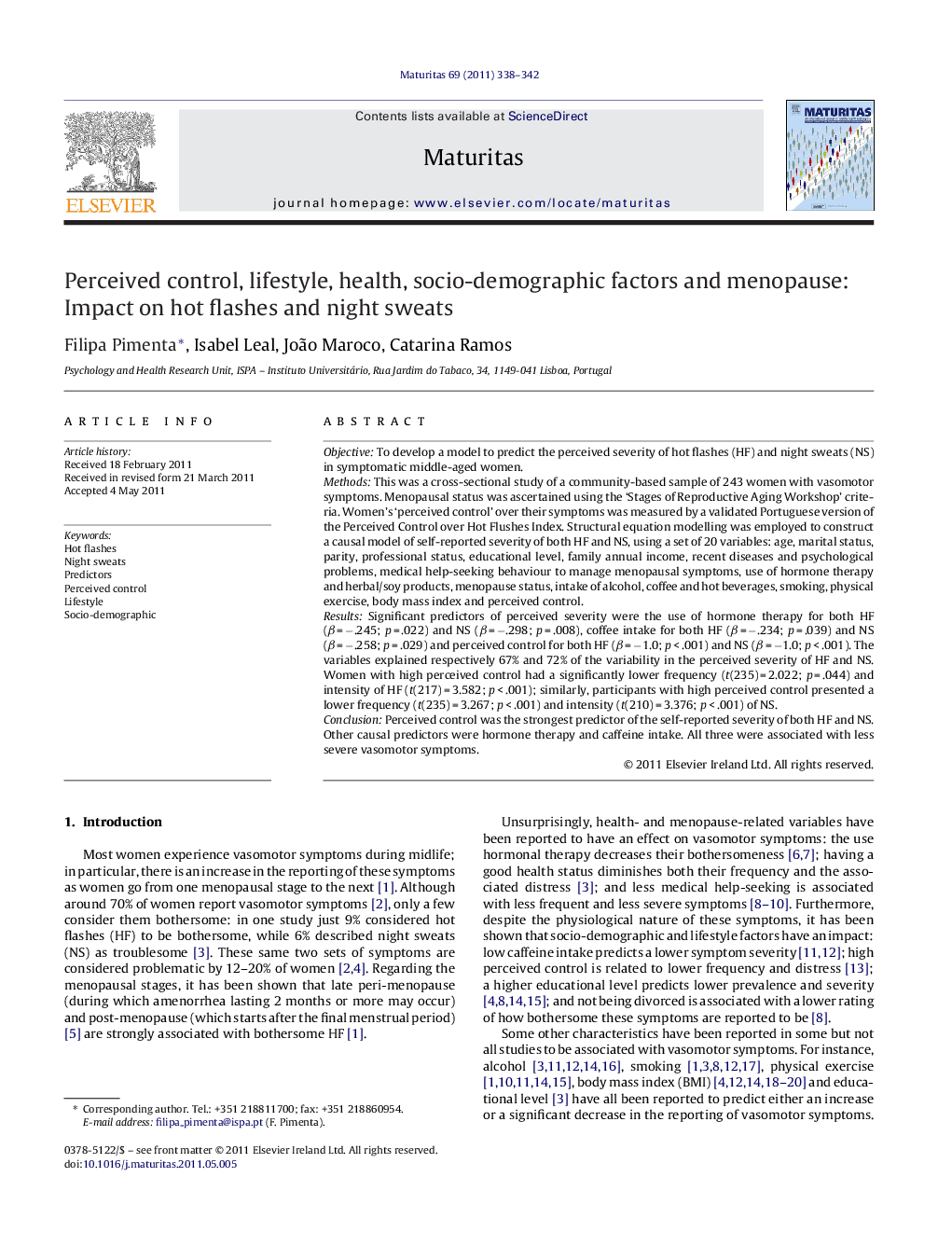| Article ID | Journal | Published Year | Pages | File Type |
|---|---|---|---|---|
| 1917751 | Maturitas | 2011 | 5 Pages |
ObjectiveTo develop a model to predict the perceived severity of hot flashes (HF) and night sweats (NS) in symptomatic middle-aged women.MethodsThis was a cross-sectional study of a community-based sample of 243 women with vasomotor symptoms. Menopausal status was ascertained using the ‘Stages of Reproductive Aging Workshop’ criteria. Women's ‘perceived control’ over their symptoms was measured by a validated Portuguese version of the Perceived Control over Hot Flushes Index. Structural equation modelling was employed to construct a causal model of self-reported severity of both HF and NS, using a set of 20 variables: age, marital status, parity, professional status, educational level, family annual income, recent diseases and psychological problems, medical help-seeking behaviour to manage menopausal symptoms, use of hormone therapy and herbal/soy products, menopause status, intake of alcohol, coffee and hot beverages, smoking, physical exercise, body mass index and perceived control.ResultsSignificant predictors of perceived severity were the use of hormone therapy for both HF (β = −.245; p = .022) and NS (β = −.298; p = .008), coffee intake for both HF (β = −.234; p = .039) and NS (β = −.258; p = .029) and perceived control for both HF (β = −1.0; p < .001) and NS (β = −1.0; p < .001). The variables explained respectively 67% and 72% of the variability in the perceived severity of HF and NS. Women with high perceived control had a significantly lower frequency (t(235) = 2.022; p = .044) and intensity of HF (t(217) = 3.582; p < .001); similarly, participants with high perceived control presented a lower frequency (t(235) = 3.267; p < .001) and intensity (t(210) = 3.376; p < .001) of NS.ConclusionPerceived control was the strongest predictor of the self-reported severity of both HF and NS. Other causal predictors were hormone therapy and caffeine intake. All three were associated with less severe vasomotor symptoms.
